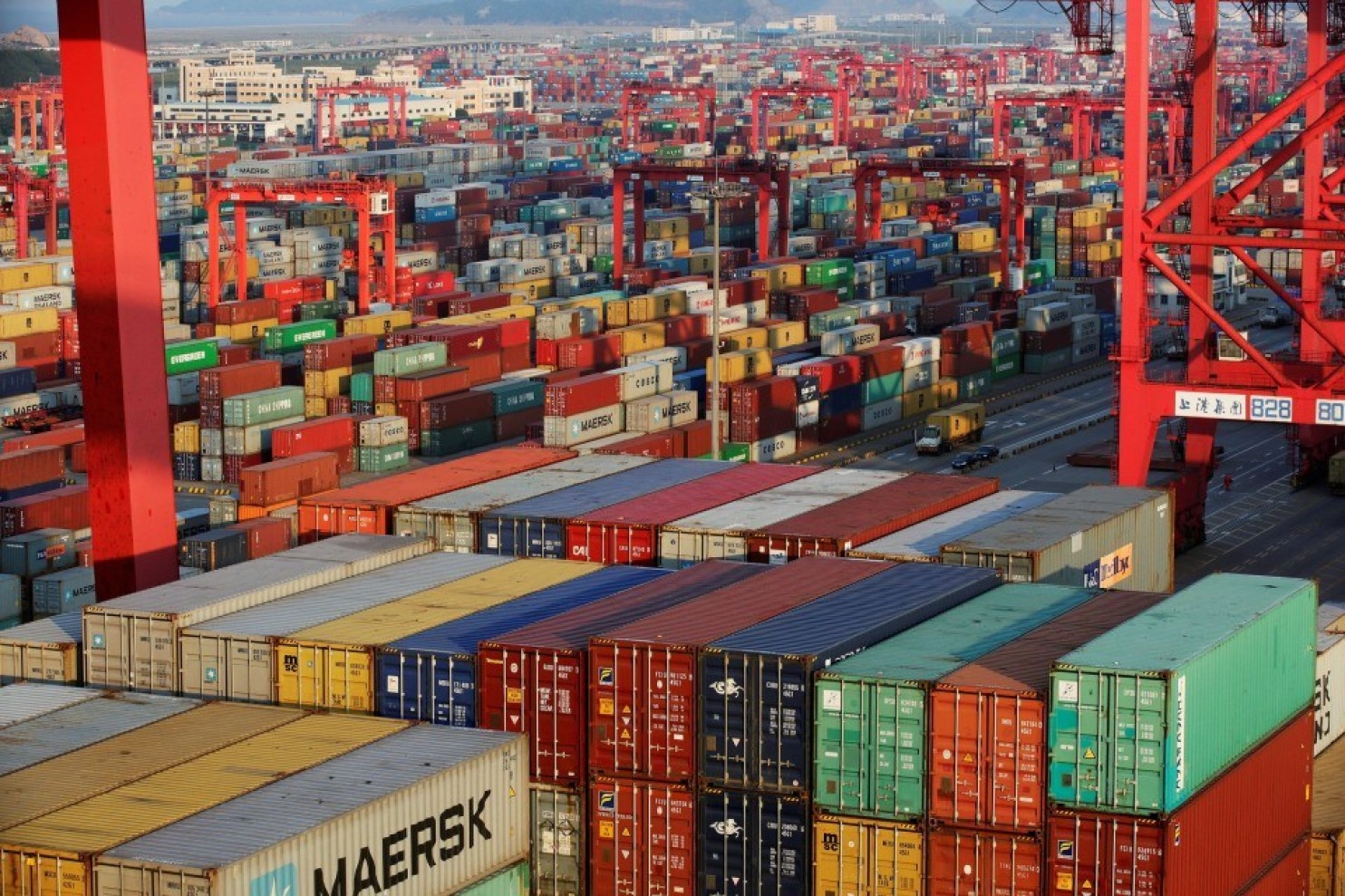Media Report

- The Washington Post reports: "China's trade surplus with the United States hit a new record last month, defying — for now, at least — President Trump's predictions that tariffs would help redress the trade imbalance. Although economists expect the American tariffs to eventually have an impact, the trade statistics reinforce the widely held notion here that there will be no quick end to the trade war between Washington and Beijing (...) China enjoyed a record high $34.1 billion trade surplus with the United States in September, taking the surplus for the year to date to $225.8 billion, according to Chinese statistics released on Friday. That's significantly higher than the $196 billion recorded between January and September last year. The increase is the result of both increasing exports from China to the United States — up 14.5 percent from the same month last year — and a decline in the goods that China is buying from the country. More than the tariffs, the worsening trade imbalance is also a reflection of the two countries' economies, experts said."
- The Wall Street Journal reports: "The Trump administration is moving deliberately to counter what the White House views as years of unbridled Chinese aggression, taking aim at military, political and economic targets in Beijing and signaling a new and potentially much colder era in U.S.-China relations. In the first 18 months of the administration, ties between the world's two biggest powers were defined by negotiations over how to restrain North Korea and ways to rebalance trade. Those high-profile endeavors masked White House preparations for a more hard-nosed stance with Beijing—a strategy now surfacing as China's help with Pyongyang wanes and trade talks stall. Interviews with senior White House officials and others in government make clear that recent volleys in what appears a new Cold War aren't the exception to President Trump's China policy."
- CNBC reports: "By stock market performance this week, mainland China has had the most issues to deal with among major world economies. The Shanghai composite has fallen 7.6 percent over the last five trading days, making it the worst performer of the closely followed global indexes. While retail-investor-dominated mainland Chinese markets cannot be taken as a direct gauge on economic conditions, the volatility is important for global investors to consider as Beijing makes financial market reform a major policy objective. Concerns about a slowing domestic economy — as Beijing tries to reduce reliance on debt-fueled growth — have hit investor sentiment on Chinese stocks, despite announcements of fiscal and monetary stimulus. Rising tensions with the U.S., the country's largest trade partner, and a weakening currency have also added to worries about growth."
Calendar
- 2018-10-11 The Trump administration is right to redefine relations with China
- 2018-10-10 In New Slap at China, U.S. Expands Power to Block Foreign Investments Image
- 2018-10-09 Interpol Chief Was China’s Pride. His Fall Exposes the Country’s Dark Side.
- 2018-10-07 China Acts to Shore Up Economy Amid Weight of Trade War
- 2018-10-05 China’s Small Farms Are Fading. The World May Benefit.
- 2018-10-04 US and China are at risk of a '10- or 20-year' economic cold war, former Fed governor Warsh says
- 2018-10-03 The U.S. and China are playing a dangerous game. What comes next?
- 2018-10-02 Trump's trade victories mean the White House can now 'focus all its ire on China'
- 2018-10-01 Mattis Trip to China Canceled
- 2018-09-28 China, Russia take their turn at the UN
News
- The Wall Street Journal U.S. Edges Toward New Cold-War Era With China
- CNBC China looks the most hurt by the week's global market turmoil
- The Washington Post China's trade surplus with the U.S. hit a record $34.1 billion in September amid trade war
- CNBC Mnuchin warns China: What we gain on trade, we won't lose on currencies
- Bloomberg U.S. Treasury Staff Finds China Isn't Manipulating Yuan, Sources Say
- Business Insider China's trade surplus with the US swells to a record high
- CNBC Ford sales in China dropped 43 percent in September
- The Wall Street Journal China's Auto Sales Face First Annual Decline in Decades
- CNBC Larry Kudlow suggests some CEOs may be using China tariffs as an excuse for poor performance
- The Wall Street Journal China Ramps Up Pressure on Exiled Critic, Fining His Company $8.7 Billion
Commentary
- The Washington Post China finally admits it is building a new archipelago of concentration camps. Will the world respond?
- Bloomberg Blame the Trade War for China's Luxury Swoop
- Associated Press China trade surplus with US widens to record $34.1B
- The Washington Post This is how Trump can win the cold war with China
- The New York Times The Week in Tech: Fears of the Supply Chain in China Image
- The Washington Post Trump's new China strategy faces its first big test
- Financial Times The US is hunkering down for a new cold war with China
